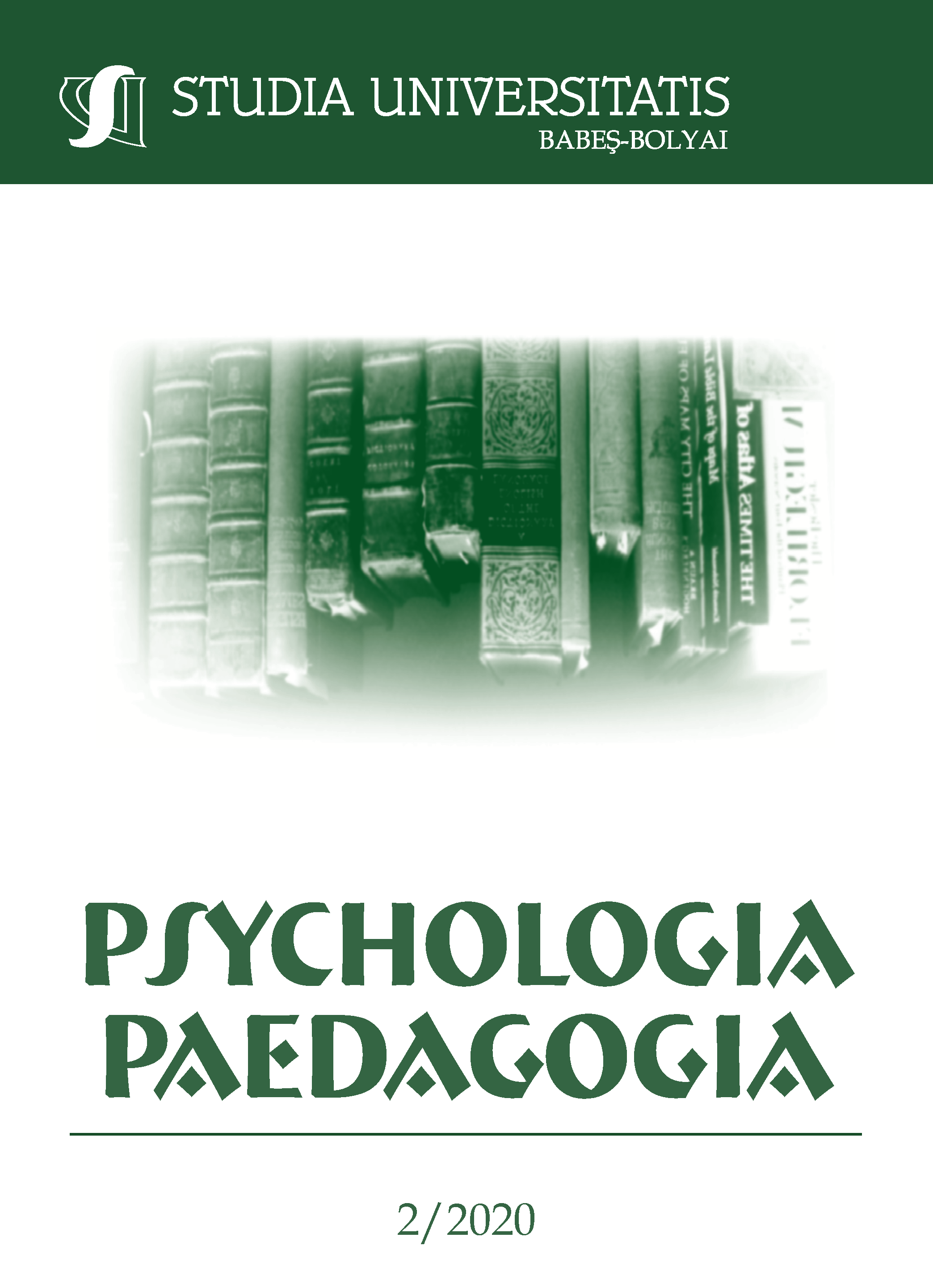THE CONCEPT OF DEATH. FROM SOCRATES TO ELLIS
DOI:
https://doi.org/10.24193/subbpsyped.2020.2.01Keywords:
death, Socrates, method, concept, analysis, beliefs.Abstract
Death is a concept studied from ancient times by all major areas, from literature and art, to philosophy and psychology. In this research, we analyze the way Socrates, the famous Greek philosopher, negotiates the idea of death, through his own death. We approached this, because the ancient philosopher was put in this situation when he was sentenced to death, unjustly, following a democratic decision. His way of seeing death reveals a formula that does not match the expectation of his contemporaries, nor the classical typology of the imminence of his own death, belonging to psychiatrist Elizabeth Kübler-Ross. And the explanation of this non-coincidence is based on the philosophical idea of man and world and the specifics of his philosophical practice. It is precisely this philosophical conception and practice that will make Socrates’ attitude become repeatable and not unrepeatable, as one might expect, since this attitude appears so conditioned by specific elements. In fact, the rational research on the grounds of beliefs and personal knowledge that stands at the basis of his philosophical practice, is deeply rooted in the foundations of Rational Emotive Behavior Therapy (REBT). Therefore, what lays at the basis of Socrates’ view on death goes far beyond the ancient cultural framework. To fill in the phenomenal dimension with the one of organic layer, the analysis will also include an interpretation of Socrates’ behavior, from the dopamine mechanism approach.References
Bloom, B.S. (1956). Taxonomy of educational objectives: The classification of educational goals. New York, NY: Longmans, Green.
Aronson, E., Timothy D., W., Robin M. A. (2013). Social psychology. New York: Pearson Education. Ediția a VIII-a.
Cornford, F.M. (2009). From Religion to Philosophy. A Study In The Origins Of Western Speculation, Book Jungle.
Corr, C. A., Nabe, C. M., Corr, D. M. (2009). Death and Dying, Life and Living, Sixth Edition, Belmont, California: Wadsworth/Cengage Learning.
Ellis, A. (1979). The Theory of Rational Emotive Therapy. In A. Ellis, J.M. Whiteley (Eds). Theoretical and Empirical Foundation of Rational Emotive Therapy, Monterey, CA, Broos Cole.
Friedman, R. & James, J. W. (2008). „The Myth of the Stages of Dying, Death and Grief”. Skeptic Magazine 14 (2): 37–41, retrieved from https://www.griefrecoverymethod.com/blog/2012/01/stages-grief-myth
Jaspers, K. (1996). Socrates, Buddha, Confucius, Jesus: From the Great Philosophers, volume 1, Harvest Books.
Kübler-Ross, E. (1969). On Death and Dying, London, Tavistock/Routledge.
Laertios, D. (2018). Lives of the Eminent Philosophers, Oxford Univesity Press.
Liberman, D. Z., Long, M. E., (2019). The Molecule of More: How a Single Chemical in Your Brain Drives Love, Sex, and Creativity - and Will Determine the Fate of the Human Race, BenBella Books.
Miclea, M. (2003). Psihologie cognitivă. Modele teoretico-experimentale, Iași, Ed. Polirom.
Nails, D. (2020). “Socrates”, The Stanford Encyclopedia of Philosophy, Spring Edition. Retrieved from https://plato.stanford.edu/archives/spr2020/entries/socrates
Peters, F. (1967). Greek Philosophical Terms: A Historical Lexicon, New York University Press.
Plato (1997). Complete Works, Indianapolis/Cambridge Hackett Publishing Company. Edited, with introduction and notes, by Johan M. Cooper.
Plato (2008). Crito, Oxford Univesity Press.
Spitzer, M. (2013), Demența digitală. București, Editura Humanitas.
Vernant, J.P. (1984). The Origins of Greek Thought, Cornell University Press.
Vernant, J.P. (1990) Myth and Society in Ancient Greece, Zone Books.
Vlastos, G. (1991), Socrates: Ironist and Moral Philosopher, Cornell University Press.
Vlăduțescu, G. (2001), O enciclopedie a filosofiei grecești. București, Editura Paideia.
Xenofon (1997). Memprabilia. Oeconomicus. Symposium. Apology. Harvard University Press Cambridge, Massachusetts, London, England.
Downloads
Published
How to Cite
Issue
Section
License
Copyright (c) 2020 Studia Universitatis Babeș-Bolyai Psychologia-Paedagogia

This work is licensed under a Creative Commons Attribution-NonCommercial-NoDerivatives 4.0 International License.


